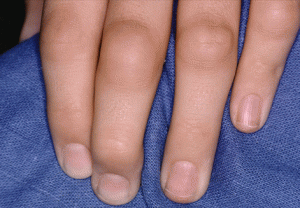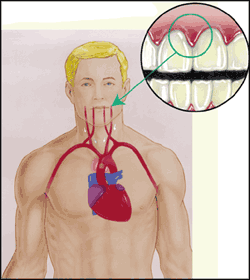Several treatment options have become available to patients suffering from rheumatoid arthritis, but side effects can be a problem. Corticosteroids are still needed, and methotrexate has been added. While anti-tumor-necrosis factor therapy (TNF alpha antibody) is a very beneficial form of treatment, there are patients who fail to respond or have toxicity to these therapy forms.
Dr. Stanley Cohen, a clinical professor of internal medicine at the University of Texas Southwestern Medical School in Dallas investigated 520 patients who had not adequately responded to methotrexate and anti-TNF therapy. The patients received the genetically engineered monoclonal antibody, rituximab (Rituxan), which so far has been used to treat Hodgkin’s lymphoma. It was found to be highly effective for active rheumatoid arthritis when given with methorexate in patients who experienced an inadequate response to anti-TNF therapies.
The patients were randomly selected and received either a single dose of 1000mg rituximab or placebo on days one and fifteen. All patients received a corticosteroid prior to the infusion. They also took a short course of oral corticosteroids between the two injections. For the patients on rituxmab, the medication proved beneficial. It was also well tolerated. Statistically 51% of the patients on rituximab had at least a 20% improvement on the swollen and painful joints and at least 20% improvement in 3 to 5 other criteria, like general well being, disability or laboratory tests of C-reactive protein.
Only 18% of the placebo group showed any improvement. It was also noted that the effects of this one-time treatment could last up to 15 months.
As good as the current medication is, there are treatment failures. Dr. David Karp, chief of Rheumatic diseases at the same university but not involved with this study finds the development very valuable.
He concludes that it becomes important in this area to personalize the treatment plan. The future is to look at the patients’ blood or gene makeup and prescribe specific therapies directed at their particular problem.
More information regarding treatment of rheumatoid arthritis: http://nethealthbook.com/arthritis/rheumatoid-arthritis/treatment-rheumatoid-arthritis/
Reference: The Medical Post, December 20, 2005, page 33
Last edited October 30, 2014








